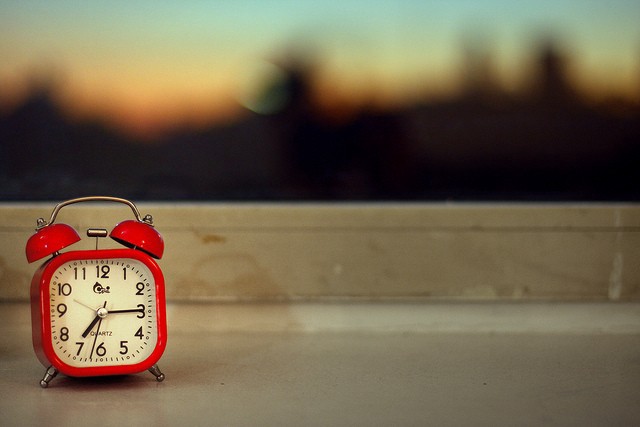Sleep Is Also Work, And You’re Not Working Hard Enough At It

Continuing this week’s look at “things that are work” (see: Twitter, FitBit), I give you sleep.
Actually, I don’t give you sleep. You have to work at getting the best amount of sleep for your physical and mental fitness — not to mention your own personal happiness — and a lot of us just aren’t working hard enough at it.
As Business Insider writes:
Almost nobody regularly sleeps over eight hours a night. Most of the nation sleeps less than 7.5 hours a night.
Look at us, slacking off on sleeping! Did you know that if you just worked a little harder at sleep, you’d be happier?
More sleep = a happier person. People who sleep between eight and 9.5 hours during the night tend to wake up happier.
Business Insider gets that statistic from fitness-tracker Jawbone (the Our Generation to FitBit’s American Girl), which used user data on sleep, exercise, and mood to give us this report:
Our data shows that longer sleep duration is correlated with improved mood, until you get to 8 hours of sleep. We see that people who sleep between 8–9.5 hours during a night tend to wake up happier than those who slept less or more than that. There was also a clear relationship between steps on the previous day and the mood of the user in the morning: better moods correlate with more steps.
Do you not understand? If you sleep more, you’ll be happier. If you’re happier, you’ll take more steps. If you take more steps, you’ll work harder to hit your fitness tracker goals. This, in turn, could lead to who knows what — an appearance of greater productivity in the workplace due to a slightly “fitter” looking body? Actual productivity in the workplace due to increased energy levels? More opportunities to do your best work at all times?
We know that maintaining the appearance of a slim figure correlates with higher income. (As in, you’ll get offered $9,000 less in salary if you appear to be overweight.) We also know that maintaining a good mood helps facilitate those all-important relationships that help you build your career! (Also, some companies are testing the idea of making employees wear “mood trackers.” So you’d better start building your expertise in “good moods” right now.)
And all of this comes back to sleep! Glorious, wonderful sleep! Which you are doing ALL WRONG. Back to Business Insider for a minute:
Your commute comes out of your sleep time. The longer the commute, the less you sleep.
People who commute at least 15 miles go to bed 28 minutes earlier than noncommuters, but they wake up 51 minutes earlier, meaning they sleep 13 minutes less.
If you want better sleep, work harder at finding a better place to live.
Basically, if you live in a city — whether that city is on the coast, in the midwest, or in the west — you typically sleep less than seven hours a night.
Work harder at finding a place to live that isn’t a city.
There are scientific tricks for getting a better night’s sleep. For instance, sleeping on our backs can make us prone to snoring, which can keep us from sleeping deeply. So try sleeping with fewer pillows or in different positions.
Work harder at sleep position optimization. I mean, how hard could it be? All you have to do is take careful notes of the positions in which you fall asleep and wake up, and correlate them against the data you get from your fitness tracker, which you had also better work at adjusting your budget to purchase, since they usually cost $100 or more.
And then track your sleep, track your steps, track your mood, start searching for affordable living situations that allow you to reduce your commute, start thinking about uprooting yourself from your current urban location and moving to a smaller town, and start asking yourself whether you are truly doing your best work, every day.
You also need to do this while cutting at least 90 minutes of other work out of your day, so you have enough time to get the 8 to 9.5 hours of recommended sleep you need to be at optimum happiness.
Because if you aren’t hitting optimum happiness, you aren’t working hard enough.
Photo credit: Alex
Support The Billfold
The Billfold continues to exist thanks to support from our readers. Help us continue to do our work by making a monthly pledge on Patreon or a one-time-only contribution through PayPal.
Comments